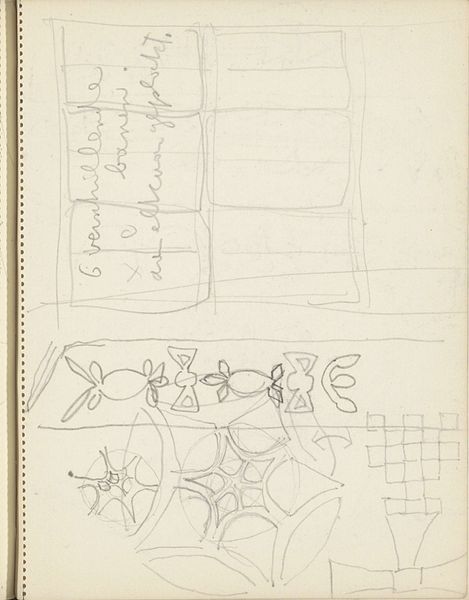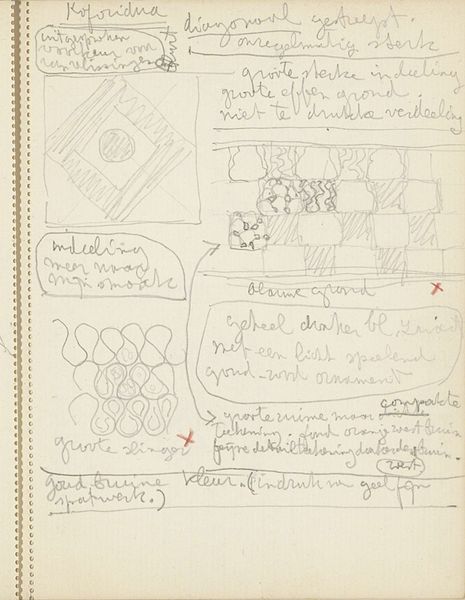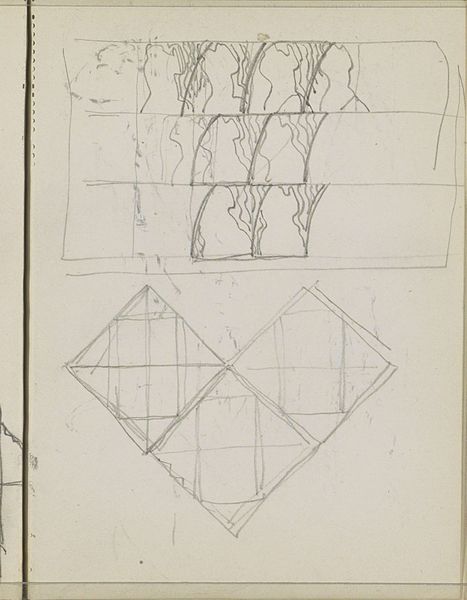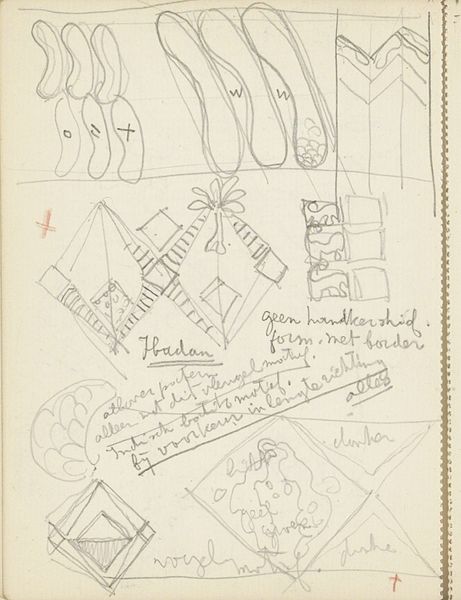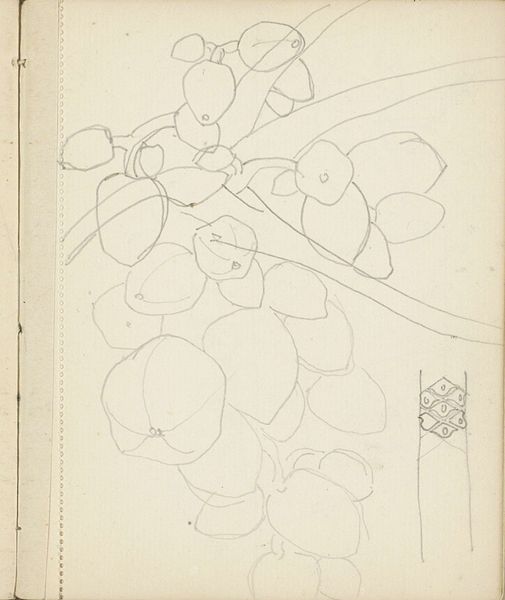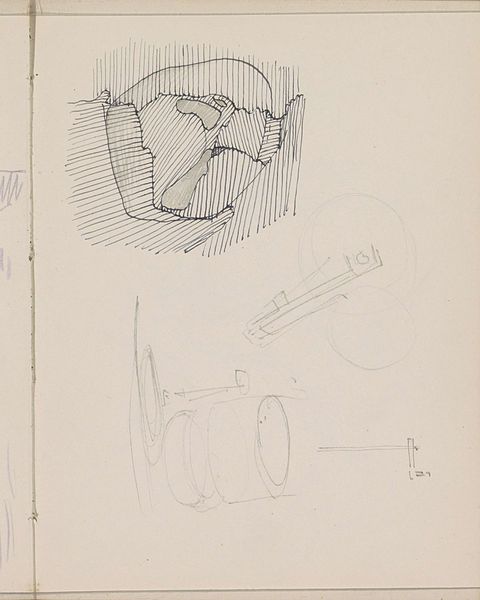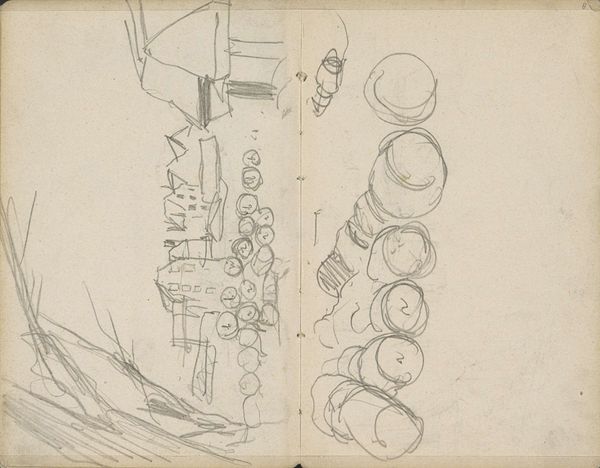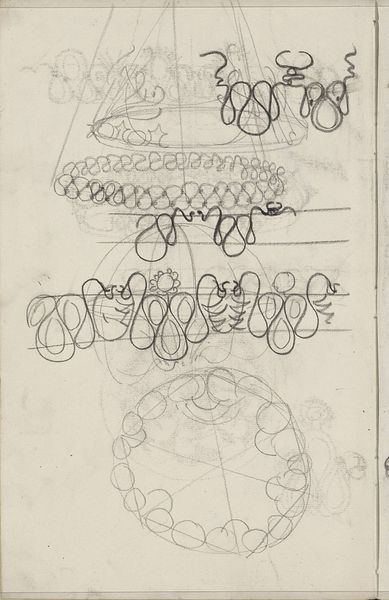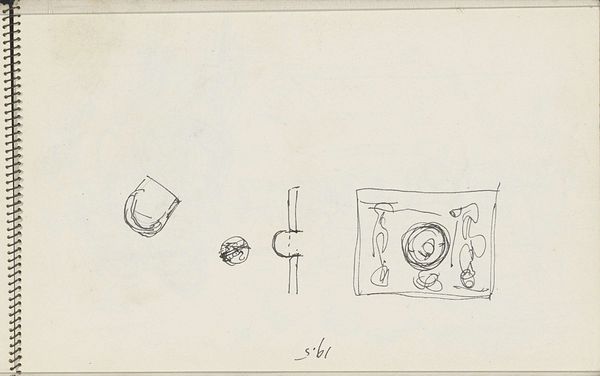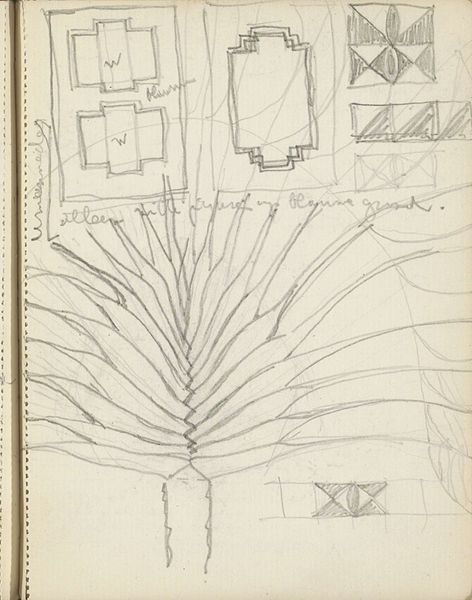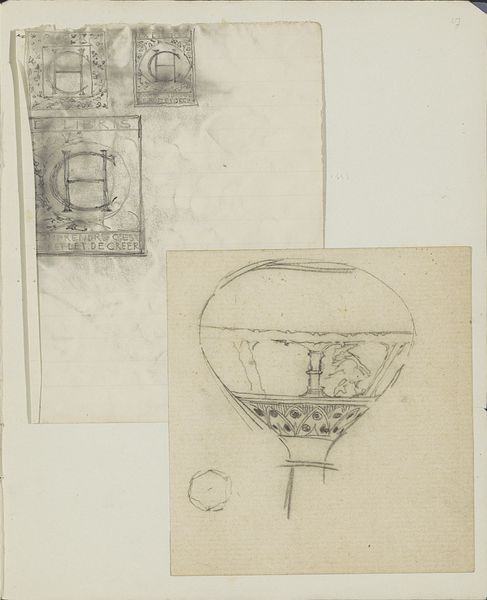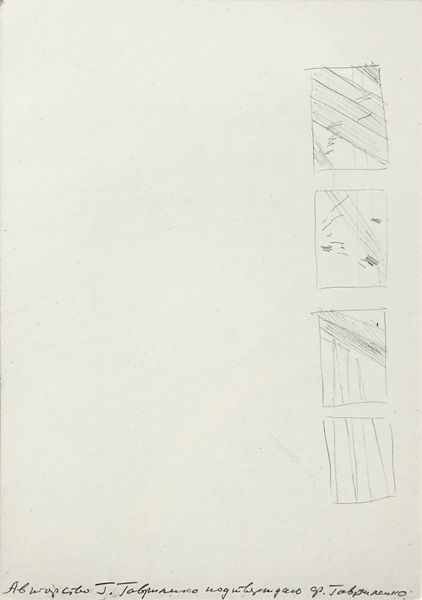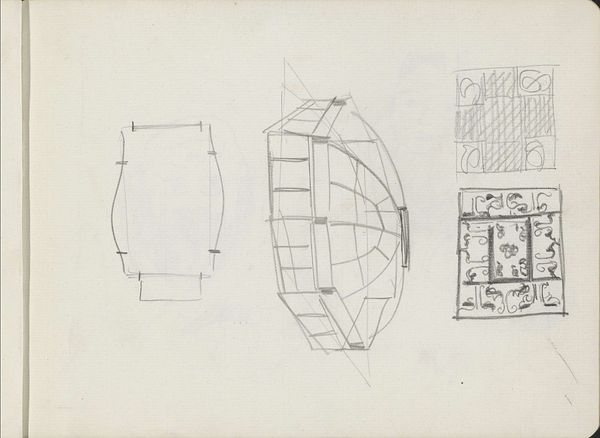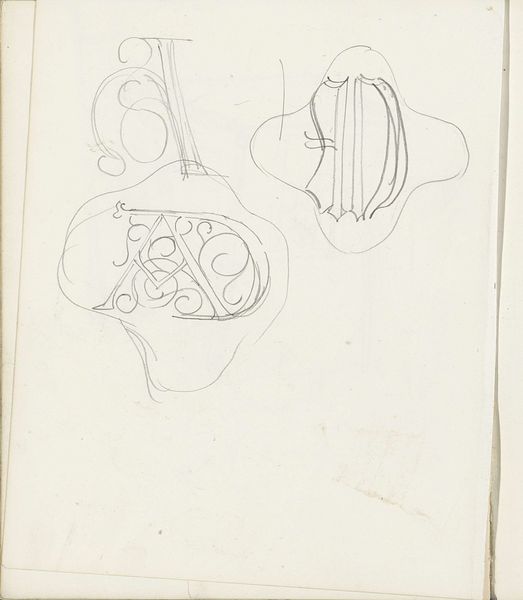
drawing, pencil
#
drawing
#
comic strip sketch
#
light pencil work
#
old engraving style
#
personal sketchbook
#
idea generation sketch
#
sketchwork
#
ink drawing experimentation
#
geometric
#
pencil
#
abstraction
#
sketchbook drawing
#
storyboard and sketchbook work
#
sketchbook art
Copyright: Rijks Museum: Open Domain
Editor: Here we have "Decorative Motives, among others with Flowers," a pencil drawing dating from somewhere between 1916 and 1945. I find the composition really interesting – the overlapping shapes, the contrast between geometric and organic forms. What do you see in this piece, focusing on its form? Curator: Primarily, I observe a preoccupation with the relationship between figure and ground. The artist has used a sparse linear technique to explore how shapes can simultaneously define themselves and create the space around them. Notice how the negative space between the ovoid forms creates implied shapes, almost mirroring the positive forms. Do you find a sense of depth created through this interplay? Editor: I do, now that you point it out. It’s not just flat shapes on a page. The overlapping adds to that illusion. Curator: Precisely. And the slight variations in line weight introduce a subtle hierarchy, suggesting some shapes are intended to recede while others come forward. Even the hint of floral motifs within this geometric structure contributes to this tension. One might consider this through the lens of structuralism, where binary oppositions – organic versus geometric, positive versus negative – generate meaning. Editor: So, the tension between these contrasting elements is where the artwork finds its meaning, as opposed to external factors. That's really interesting; I hadn't considered it that way. Thanks for offering that perspective. Curator: Indeed. Through close visual analysis and theoretical framing, the formalist approach invites us to discover intrinsic qualities and systems within the artwork, thereby enriching our appreciation.
Comments
No comments
Be the first to comment and join the conversation on the ultimate creative platform.
